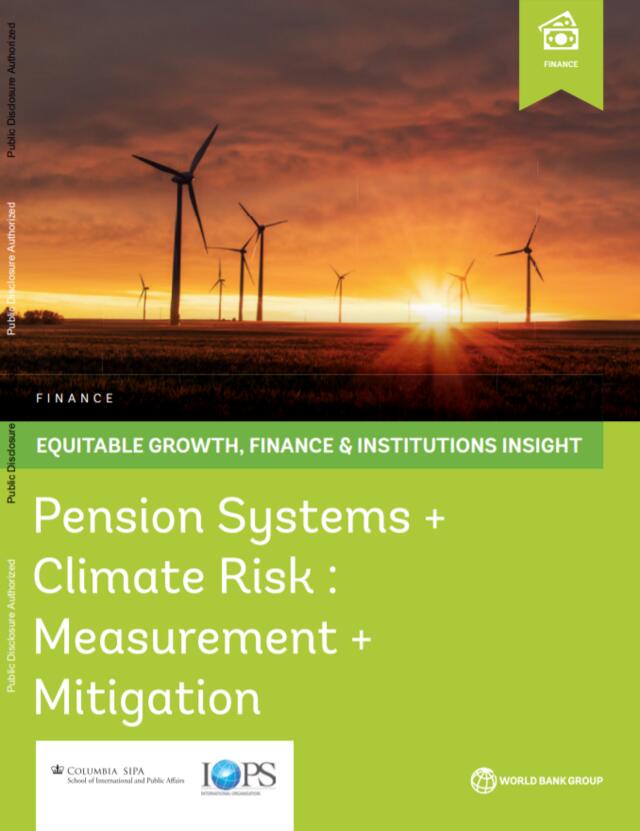
World Bank Publishes Spring 2020 Capstone Findings

Capstone workshops ask MIA and MPA students to conduct consulting projects for external clients in the public, private, and nonprofit sectors. The resulting policy analysis and recommendations, which are completed under the guidance of faculty advisers, represent the culmination of students’ educational experience at SIPA.
Last month the World Bank published the final report of its Spring 2020 student consultants. The same team received the Leous/Parry Award for Progressive Sustainability, which recognizes the best student paper or project highlighting environmental issues, at SIPA’s most recent graduation ceremony.
One of the team members, Laura Kunstler-Brooks MIA ’20, prepared the following account of the team’s efforts for SIPA News.
Pension funds can potentially play a critical role in combatting climate change by providing much-needed investment. The World Economic Forum estimates that approximately $44 trillion of economic value generation is dependent on nature and its services. If institutional investors don’t act to prevent climate change, they may lose up to $10.7 trillion in portfolio value. As the second-largest global asset owners after mutual funds, pension funds have the capacity to both account for climate risk and finance solutions.
Our Capstone group was given the opportunity to examine the potential impacts of climate change on pension systems worldwide, and generate a set of actionable recommendations. The findings and recommendations we produced for the World Bank are now available in the report Pensions Systems & Climate Risk: Measurement & Mitigation.
Joining me in our Capstone group were Pauline Deschryver MPA-DP ’20, Patrick Dougherty MPA ’20, Jumi Kim MPA ’20, Jiaru Qin MPA-DP ’20, Jing Wu MPA ’20, Shan Wu MPA ’20, and Bingjie Zhou MPA ’20, each of whom brought considerable financial, environmental, and policy experience to the table. We were supervised by Cary Krosinsky and Thomas Murtha, both experts in sustainable investing.
Our team set out on a three-part journey: mapping, comparing, and examining. First, we generated a heatmap that measured pension-fund climate risk for each available country. Our analysis showed that European countries such as Italy, Latvia, and Sweden faced the lowest risk to their pension assets, while small island economies were most vulnerable to climate financial risk. Second, we compared each country’s climate risk score to its regulatory risk score, and found that several countries were able to minimize risk by requiring pension funds to integrate environmental, social, and governance (ESG) considerations into their investment process. Finally, we conducted a series of case studies of the most successful climate-aware pension funds, including Japan’s GPIF and New York Common. The case studies will be published in a separate report.
Our research yielded several best-practice recommendations for pension funds regulators:
- Allow for appropriate levels of international diversification to minimize climate risk
- Adopt a holistic definition of fiduciary duty that includes ESG considerations
- Build ESG literacy and awareness within the organization
- Share and adopt best practices through relevant networks.
Our team believes that climate change is one of the greatest threats to the stability of the global financial system. We also believe that pension funds are uniquely positioned to both address climate change risk and invest in mitigation opportunities. We’re proud to dedicate the prize money we received in conjunction with the Leous/Parry Award for Progressive Sustainability to raising awareness around this important issue and spurring institutional investors to climate action.